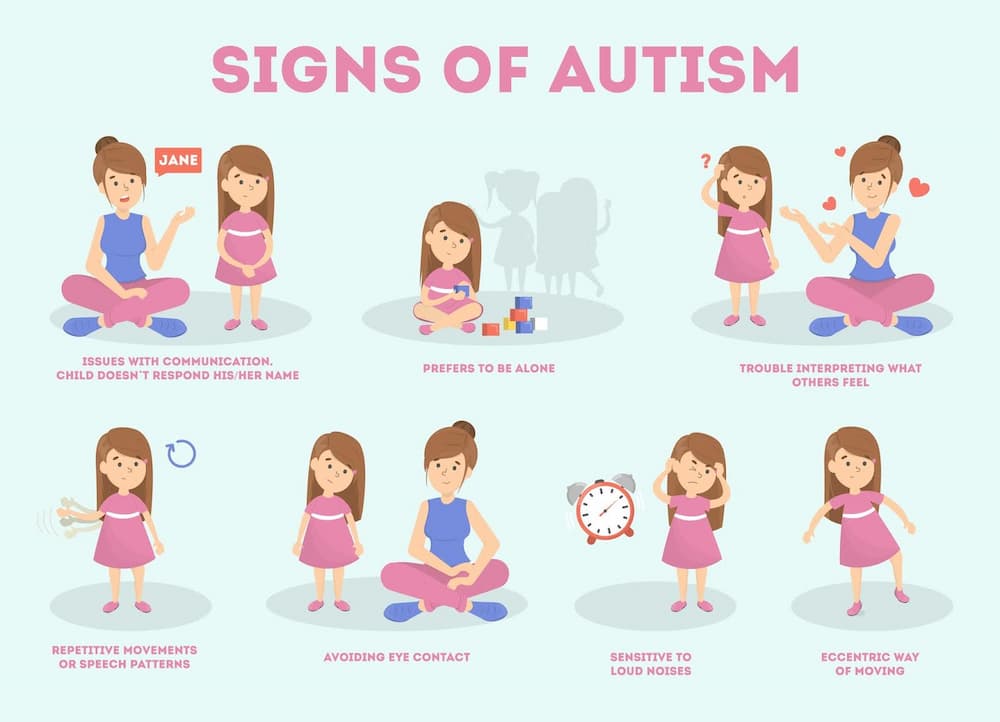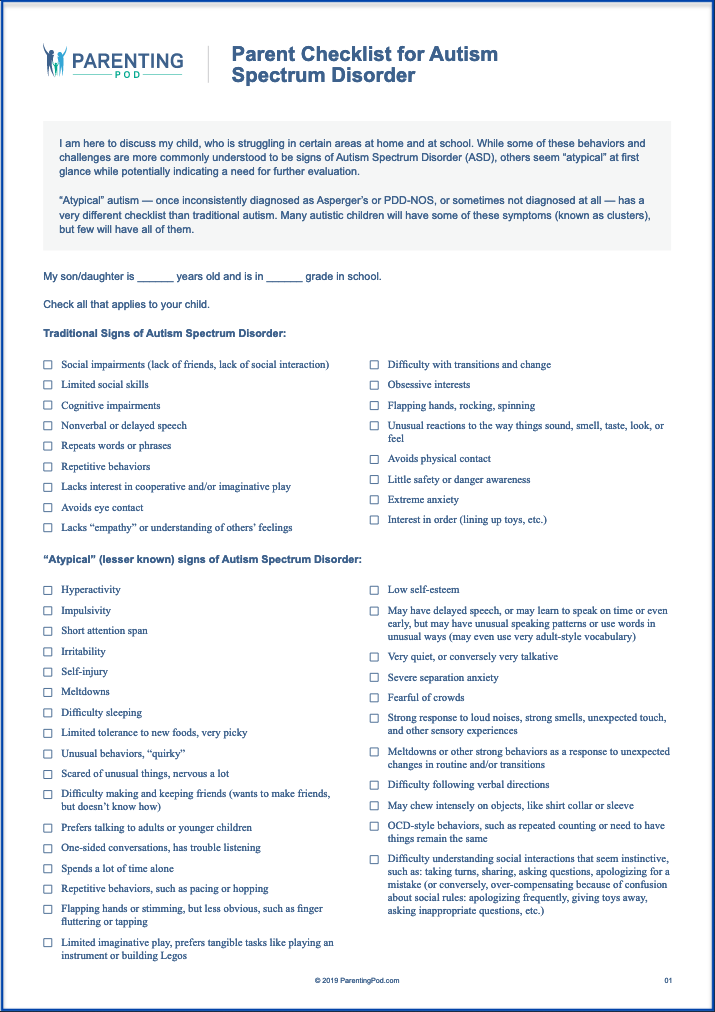10 Must-Know facts about how an Autism Therapist impacts social growth in autism
10 Must-Know facts about how an Autism Therapist impacts social growth in autism
Blog Article
Key Indicators and Symptoms to Identify in People With Behavioral Autism
When you encounter somebody with behavioral autism, acknowledging essential symptoms and signs is essential. You may see obstacles in social interactions and communication, along with a strong requirement for regimens. Additionally, sensory level of sensitivities can lead to overwhelming experiences. Recognizing these qualities can boost your assistance and interventions, but there's more to discover concerning just how these actions show up in day-to-day scenarios. Let's explore what these signs really look like.
Challenges in Social Interactions
When you interact with somebody on the autism spectrum, you might notice they struggle with social signs and communication. These difficulties can make social interactions feel frustrating for them.
When they do involve, they could talk concerning their rate of interests in fantastic detail without discovering if you're interested. Recognizing these challenges can aid you approach communications with compassion and patience, promoting an extra comfortable atmosphere for both of you.
Trouble With Verbal and Non-Verbal Interaction

Non-verbal interaction can be even extra challenging. You could see a lack of eye contact or minimal use motions, which can make communications feel unpleasant. Facial expressions might not always straighten with the conversation, leading to confusion about their sensations. Acknowledging these signs is necessary, as it assists you better assistance and engage with individuals on the autism range. By recognizing their interaction obstacles, you can cultivate more significant connections and supply a much more helpful atmosphere.
Repetitive Habits and Regimens
Interaction challenges commonly come with other indications of autism, such as repeated actions and a strong preference for routines. You may notice that individuals with autism usually take part in certain, repeated activities, like hand-flapping, shaking, or duplicating expressions. These actions can offer convenience and a sense of control in a typically overwhelming world.
When they follow an organized routine,Regimens are equally vital; many individuals flourish. You might locate that adjustments to these routines can cause considerable distress. For instance, if they have an everyday routine of consuming morning meal at a specific time or following a certain course to school, any interruption can create stress and anxiety.
Recognizing these patterns assists you comprehend their behavior and offer assistance. By accommodating their need for routine and allowing repetitive actions, you can develop an extra comfy environment that relieves their obstacles.
Sensory Level Of Sensitivities

Usual Sensory Triggers
Sensory sensitivities can significantly influence day-to-day live for people with autism, as specific stimuli typically activate overwhelming responses. Common sensory triggers include loud noises, brilliant lights, and solid scents. You could observe that unexpected sounds, like alarm systems or alarms, cause stress and anxiety or distress. Likewise, fluorescent illumination in stores can really feel uneasy and severe. Appearances can likewise play a considerable function; harsh materials or certain food structures may be intolerable for you. Furthermore, crowded locations can overwhelm your detects, making it tough to kick back or concentrate. Recognizing these triggers can help you manage your setting much better. By recognizing what influences you, you can take actions to decrease discomfort and enhance your everyday experiences.
Behavioral Responses Discussed
Recognizing your behavioral responses to sensory sensitivities is essential, as they typically expose how you communicate with the globe. You might notice that particular sounds, lights, or structures overwhelm you, bring about stress and anxiety or discomfort. When confronted with these stimulations, you could withdraw, cover your ears, and even respond aggressively. These responses aren't simply quirks; they're your means of dealing with overstimulation. You might likewise locate yourself looking for details sensory experiences, like deep stress or silent settings, to assist ground on your own. Identifying these patterns helps you comprehend your demands better and can lead exactly how you interact them to others. By acknowledging your sensory level of sensitivities, you can work towards developing a setting that really feels much more comfortable and workable for you.
Coping Techniques Introduction
Acknowledging your sensory sensitivities is simply the very first action; now it's time to explore coping methods that can aid you take care of those experiences efficiently. Start by developing a sensory toolkit customized to your demands. Developing a structured routine can also provide predictability, lowering anxiety around sensory overload.
Restricted Rate Of Interests and Emphasis
While lots of individuals develop a variety of rate of interests, those with autism often demonstrate limited rate of interests and an intense concentrate on particular topics. You may discover that somebody with autism can YOURURL.com spend hours delving right into their favored subject, whether it's a certain kind of train, a specific motion picture, or a scientific concept. This extreme emphasis isn't simply a pastime; it can end up being a central part of their identification and social communications.
You may find that discussions rotate around these rate of interests, and they might struggle to engage in more comprehensive topics. By comprehending and recognizing these limited interests, you can foster a supportive environment where they really feel valued and understood, allowing for even more significant connections and communications.
Psychological Regulation Problems
People with autism often face difficulties in psychological law, which can be affected by their extreme focus on certain passions. You could discover that when an individual is deeply taken part in a favored activity, they can experience solid feelings, whether excitement or aggravation. When points don't go as intended., this strength occasionally makes it difficult for them to move gears or handle their feelings - Autism Therapist.

Variability in Developmental Milestones
When it comes to developing turning points, you'll see that individuals with autism frequently reveal a wide range of variability. You may see a kid stand out in language skills yet battle with social interactions.
It's essential to recognize that each person's journey is special. Observing these patterns can assist you comprehend their toughness and needs better.
Regularly Asked Inquiries
Exactly How Is Autism Identified in Children and Adults?
To diagnose autism in adults and children, experts assess actions, interaction abilities, and social interactions. They often use standard examinations, interviews, and monitorings to establish if an individual meets the criteria for autism range condition.
Exist Different Kinds Of Autism Spectrum Disorders?
Yes, there are different kinds of my site autism range disorders, consisting hop over to these guys of Asperger's disorder and pervasive developing disorder-not or else specified. Each type differs in seriousness and features, so understanding these differences can help you much better assistance individuals with autism.
What Treatments Work for People With Autism?
When thinking about effective treatments for individuals with autism, you'll locate choices like Applied Behavior Evaluation, speech therapy, and job-related treatment. Each method can aid enhance communication, social skills, and daily operating customized to specific requirements.
Can Individuals With Autism Lead Independent Lives?
Yes, people with autism can lead independent lives. With the best support, abilities training, and resources, you can aid them establish self-sufficiency, manage everyday jobs, and prosper in different atmospheres, fostering their freedom.
Just How Can Families Support Enjoyed Ones With Autism?
You can support your enjoyed ones with autism by creating an organized environment, urging their interests, exercising persistence, promoting communication, and promoting social abilities. Celebrate their accomplishments, no issue how tiny, and construct a helpful area.
Although numerous people on the autism spectrum can recognize and utilize language, they typically deal with significant difficulties with both spoken and non-verbal communication. Acknowledging these signs is vital, as it aids you much better assistance and engage with people on the autism spectrum. You may notice that people with autism usually involve in details, repetitive activities, like hand-flapping, rocking, or repeating expressions.Sensory sensitivities can considerably influence daily life for people with autism, as particular stimuli commonly trigger frustrating reactions.When it comes to developing turning points, you'll discover that individuals with autism often reveal a large variety of variability.
Report this page